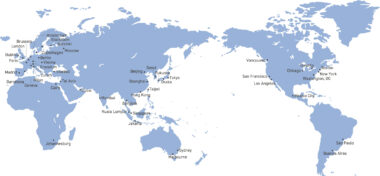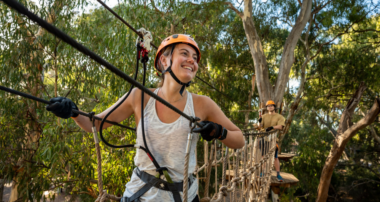
Cathay Pacific is kicking off the countdown to the premier tournament on the World Rugby Sevens Series calendar – the Cathay/HSBC Hong Kong Sevens – with an exciting opportunity for Kiwi rugby lovers to win their way to watching all the action live at the state-of-the-art Kai Tak Sports Park next month and cheer on the All Blacks Sevens.
Competition winners will receive a double three-day pass to see the thrilling on-field spectacle and feel the buzzing crowd atmosphere at the Hong Kong Sevens which runs 28–30 March 2025. Winners’ return flights from Auckland to Hong Kong will be in Cathay Pacific’s award-winning Economy cabins. They will also enjoy four nights’ accommodation and daily breakfast at the ultra-stylish EAST Hong Kong.
Cathay Pacific Regional General Manager Southwest Pacific, Frosti Lau said that the Hong Kong Sevens showcases the best of sport that Hong Kong has to offer, and Cathay is proud of its long-standing sponsorship of this spectacular event – uniting two icons of Hong Kong.
“We are so excited to be offering New Zealand’s rugby fans the chance to experience the Hong Kong Sevens in person and we think there is no better way to capture their spirit than sharing their best and boldest Hong Kong Sevens get ups with the world,” Lau said.
“It’s a great tradition amongst Hong Kong Sevens’ fans to wear fun and creative dress-ups, so we’re asking competition entrants to post a photo of themselves on Instagram dressed in their imaginative rugby-watching attire, tagging @cathaypacific and using the hashtag #GetMeToTheHK7s for a chance to win. This year’s event will be coming to a brand-new venue, taking the experience to a whole new level, and we cannot wait to take the prize-winners there to enjoy it.”
For fans wanting to see this sporting spectacle in vibrant Hong Kong, Cathay Pacific is offering discounted packages that include flights, Hong Kong Sevens tickets and accommodation – the online exclusive promotional packages, available for a limited time only, start from NZD $2,069+*.
“This is an event to tick off the bucket list and we want to bring the best deals to those ready to cheer their hearts out in Hong Kong. Nothing beats being there in person.”
Cathay Pacific’s competition requires entrants to post to a personal and public Instagram account (stories are also acceptable), with entries accepted until 28 February 2025.
Travel will take place from 27–31 March 2025, unless extended at the cost of the prize-winner. Entrants must be 18 years or over, be a New Zealand resident and hold a valid passport.
For more information on the competition, please visit https://holiday.cathaypacific.com/en_NZ/offers/hong-kong-sevens-2025-NZ-Comp.html
For more information about Cathay Pacific’s Hong Kong Sevens promotional packages, please visit https://flights.cathaypacific.com/en_NZ/offers/hong-kong-sevens-2025.html.
Contact details:
|
Cathay Pacific via Soda Communications |
|
|
|
Emily Stojcevski +61 409 552 913/Chriss Mannix +61 418 408 035 |
|
|
|
|
|
|



